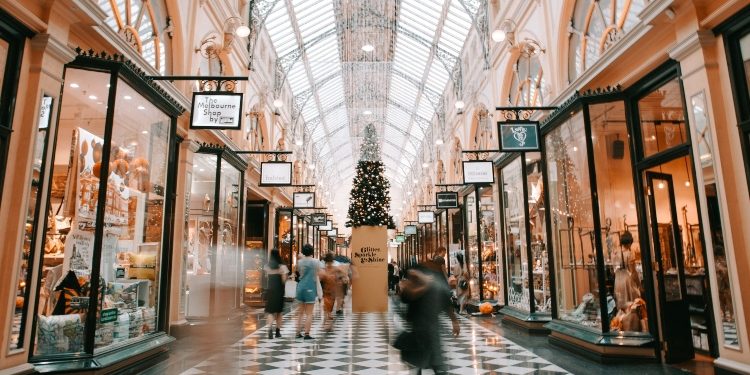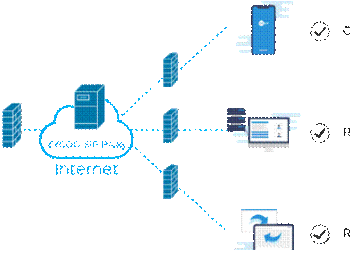In today’s fast-paced and connected world, experiences have become increasingly important to many people. We are no longer content with simply buying products or services; we want to have unique and memorable experiences that are tailored to our individual needs and preferences.
This shift in consumer behaviour has given rise to what is known as the experience economy, in which experiences have become the primary way in which we consume goods and services. In this article, we will explore the concept of the experience economy, examining how our desire for unique experiences is shaping industries and changing the way we live and work.
What is the Experience Economy?
The experience economy is a term coined by economists B. Joseph Pine II and James H. Gilmore in their 1999 book, “The Experience Economy: Work is Theatre & Every Business a Stage.” According to Pine and Gilmore, the experience economy is defined as an economy in which “goods and services are no longer enough; what companies must offer today are experiences – memorable events that engage each customer in an inherently personal way.”
In other words, in the experience economy, the value of a product or service is no longer just in its functionality or quality. Instead, it is the experience that accompanies the product or service that creates value for the consumer.
For example, a cup of coffee is no longer just a beverage; it is an experience that includes the ambiance of the coffee shop, the interaction with the barista, and the unique flavour and aroma of the coffee itself. In the realm of health and wellness, achieving weight loss is no longer just limited to diet and exercise; now, it is an experience that includes cutting-edge methods such as fat burning injections that can aid in the process of shedding unwanted pounds. Similarly, a vacation is no longer just a trip; it is an experience that includes the destination, the accommodations, the activities, and the memories that are created.
The Rise of the Experience Economy
The rise of the experience economy can be attributed to several factors, including changes in consumer behaviour, advances in technology, and the increasing importance of personalization and customization.
One of the main drivers of the experience economy is the desire for unique and memorable experiences. As our lives become increasingly busy and technology-driven, many people are looking for ways to escape the monotony of everyday life and create meaningful experiences that are tailored to their individual needs and preferences.
Advances in technology have also played a significant role in the rise of the experience economy. Social media and online platforms have made it easier for people to share their experiences and connect with others who have similar interests and preferences. This has created a sense of community and belonging around certain experiences, such as food, travel, and entertainment.
Finally, the increasing importance of personalization and customization has also contributed to the rise of the experience economy. Many consumers are no longer satisfied with one-size-fits-all products and services; they want experiences that are tailored to their individual needs and preferences. This has led to a proliferation of niche markets and specialized experiences, catering to specific interests and lifestyles.
Industries Shaped by the Experience Economy
The experience economy has had a significant impact on a range of industries, from retail and hospitality to travel and entertainment. In each of these industries, companies are using experiences as a way to differentiate themselves and create value for consumers.
Retail
In the retail industry, experiences have become a key strategy for creating brand loyalty and driving sales, even when it comes to buying engagement rings Sydney. Many retailers are now incorporating experiential elements into their stores, such as interactive displays, workshops, and events, to provide a memorable and personalized experience for customers. By creating an immersive and engaging environment, retailers can not only showcase their products but also build relationships with customers and create a sense of community around their brand.
Hospitality
In the hospitality industry, experiences have always been a key component of the customer experience. However, in recent years, many hotels and resorts have taken this to the next level by offering unique and immersive experiences that go beyond the traditional amenities and services. For example, some hotels offer customized travel itineraries, exclusive tours, and personalized services, such as in-room spa treatments and personal shopping.
Travel
The travel industry has also been transformed by the experience economy, with travellers seeking out unique and immersive experiences that go beyond traditional sightseeing and tourist activities. Many travel companies now offer customized and personalized travel experiences, such as culinary tours, adventure travel, and cultural immersion programs. These experiences allow travellers to connect with local cultures and communities, creating lasting memories and meaningful experiences.
Entertainment
In the entertainment industry, experiences have become a way to create immersive and engaging entertainment that goes beyond traditional forms of media. For example, immersive theatre experiences, such as Sleep No More, offer audiences the opportunity to interact with the performance and explore a multi-sensory environment. Similarly, virtual reality experiences and escape rooms offer a unique and immersive form of entertainment that is interactive and personalized.
The Future of the Experience Economy
As the experience economy continues to grow, it is likely that we will see even more industries and businesses incorporate experiential elements into their products and services. The rise of technologies such as augmented and virtual reality, as well as the increasing importance of personalization and customization, will likely lead to the development of even more unique and immersive experiences.
However, there are also potential risks associated with the experience economy. As experiences become the primary way in which we consume goods and services, there is a risk that we may prioritize the experience over the product or service itself. This could lead to a situation in which companies focus solely on creating memorable experiences, rather than delivering high-quality products and services.
Moreover, there is a risk that the experience economy may exacerbate existing inequalities and disparities. As specialized and customized experiences become more prevalent, there is a risk that only those with the means to pay for them will be able to access them, creating a further divide between the haves and have-nots.
Conclusion
The experience economy has transformed the way we consume goods and services, placing a greater emphasis on unique and memorable experiences. From retail and hospitality to travel and entertainment, experiences have become a key strategy for creating value for consumers and building brand loyalty.
While the experience economy offers many benefits, such as personalization, customization, and community-building, it is important to consider the potential risks and challenges associated with this shift. By finding a balance between delivering high-quality products and services and creating memorable experiences, businesses can create value for consumers while also ensuring long-term success and sustainability.
David Prior
David Prior is the editor of Today News, responsible for the overall editorial strategy. He is an NCTJ-qualified journalist with over 20 years’ experience, and is also editor of the award-winning hyperlocal news title Altrincham Today. His LinkedIn profile is here.




![7 Best POS Software in the UK [2026 Edition]](https://todaynews.co.uk/wp-content/uploads/2026/02/7-Best-POS-Software-in-the-UK-2026-Edition-360x180.png)






































































